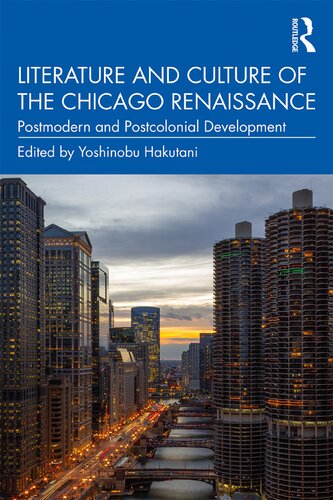

Most ebook files are in PDF format, so you can easily read them using various software such as Foxit Reader or directly on the Google Chrome browser.
Some ebook files are released by publishers in other formats such as .awz, .mobi, .epub, .fb2, etc. You may need to install specific software to read these formats on mobile/PC, such as Calibre.
Please read the tutorial at this link: https://ebookbell.com/faq
We offer FREE conversion to the popular formats you request; however, this may take some time. Therefore, right after payment, please email us, and we will try to provide the service as quickly as possible.
For some exceptional file formats or broken links (if any), please refrain from opening any disputes. Instead, email us first, and we will try to assist within a maximum of 6 hours.
EbookBell Team

4.4
92 reviewsThe Chicago Renaissance has long been considered a less important literary movement than the Harlem Renaissance. While the Harlem Renaissance began and flourished during the 1920s, but faded during the 1930s, the Chicago Renaissance originated between 1890 and 1910, gathered momentum in the 1930s, and paved the way for the postmodern and postcolonial developments in American Literature. To portray Chicago as a modern, spacious, cosmopolitan city, the writers of the Chicago Renaissance developed a new style of writing based on a distinct cultural aesthetic that reflected ethnically diverse sentiments and aspirations. Whereas the Harlem Renaissance was dominated by African American writers, the Chicago Renaissance originated from the interactions between African and European American writers. Much like modern jazz, writings in the movement became a hybrid, cross-cultural product of black and white Americans. The second period of the movement developed at two stages. In the first stage, the older generation of African American writers continued to deal with racial issues. In the second stage, African American writers sought solutions to racism by comparing American culture with other cultures. The younger generation of African American writers, such as Ishmael Reed, Charles Johnson, and Colson Whitehead, followed their predecessors and explored Confucianism, Buddhist Ontology, and Zen.
This volume features essays by both veteran African Americanists and upcoming young critics. It is highlighted by essays from scholars located around the globe, such as Toru Kiuchi of Japan, Yupei Zhou of China, Mamoun Alzoubi of Jordan, and Babacar M'Baye of Senegal. It will be invaluable reading for students of Americanists at all levels.